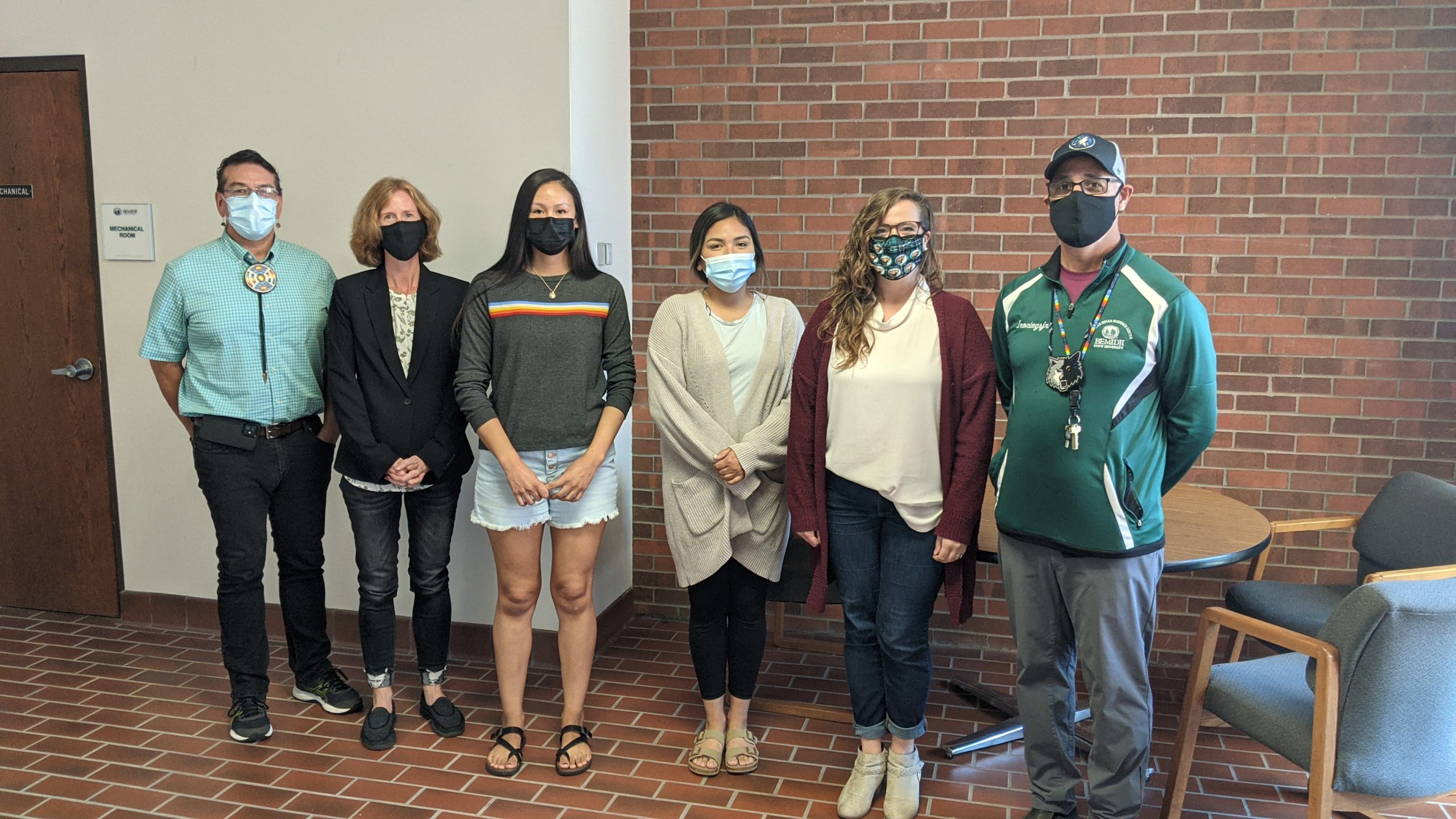 The Bemidji State University Department of Psychology recently received a one-year, $9,981 Minnesota State Colleges and Universities Educational Innovations Grant to launch a scholarship program for Indigenous students studying psychology.
The Bemidji State University Department of Psychology recently received a one-year, $9,981 Minnesota State Colleges and Universities Educational Innovations Grant to launch a scholarship program for Indigenous students studying psychology.
With a pilot cohort of six students, the Indigenous Students in Psychology Training (InPsyT, pronounced like “insight”) program will train and prepare American Indian students for careers in psychology through mentorships with Indigenous psychologists and mental health professionals.
In addition to receiving a $500 scholarship, cohort members will explore psychology and behavioral health topics as they pertain to American Indian populations, receive training on Indigenous research methodologies and attend the annual Society of Indian Psychologists conference.
Program co-founder Dr. John Gonzalez ‘99, BSU alum and professor of psychology, says the InPsyT program will not only benefit Indigenous students, but will also provide him the opportunity to give back to the next generation of American Indian psychologists.
“I feel like I am coming full circle in my career having started here at BSU as a psychology major,” he said. ”I wouldn’t be back here without my mentor Dr. Russ Bennett, professor emeritus of psychology; I wouldn’t have my PhD without a program like this at my graduate school; I wouldn’t have been able to accomplish so many things in my career without others supporting me and providing me with guidance, mentorship and opportunities. It is a real honor to have this chance to give back in this way.”
This fall, the cohort’s activities will include bi-weekly luncheons with psychology faculty and feature campus-wide lectures with American Indian professionals in psychology. At the inaugural cohort meeting, Shelene Head, a junior psychology student from Bemidji, shared how supported she feels by the professors in the InPsyT program.
“It’s really empowering having that support system,” Head said. “I feel that I can accomplish so much more now within this area of expertise with them working with me.”
Similarly, Whitney Spears, a senior from Redby, Minnesota, double majoring in psychology and indigenous sustainability echoed Head’s statements.
“Having the support of the faculty in this program is really helpful, especially as a first generation student,” she said.
Looking forward, Dr. Sarah Cronin, InPsyT co-founder and assistant professor of psychology, says the mentor opportunities for InPsyT students will allow Bemidji State to expand its impact on the psychologists of the future.
“The professional networking and learning that can occur with those opportunities can be a great inspiration for InPsyT students and their budding careers in psychology,” she said. “Programs like this can provide culturally relevant training that is too often omitted from psychology training programs and I am grateful for the opportunity to serve BSU in its mission to become a destination university for Native American students.”
The InPsyT program will also assist students develop post-graduate plans and the faculty is already helping the cohort look for future careers, Spears said.
“I’m really excited about gaining all of the resources that I’ll need to grad school,” Spears said. “Having this program guide my way to grad school is really helpful.”
The first event of the program’s speaker series welcomes Dr. Joseph P. Gone, professor of anthropology and of global health and social medicine at Harvard University. Gone’s Zoom lecture “American Indian Historical Trauma: Retrospects and Prospects” will be held from 2-3:30 p.m. on Sept. 15 in Hagg-Sauer Hall 150. Attendees may also attend the event virtually.
“I am excited for our InPsyT speaker series where students will learn about important topics, relevant to their career goals in psychology, from professionals they can identify with,” Dr. Angela Fournier, professor of psychology and program co-founder, said. “The speaker series is open to everyone, providing an opportunity for learning and growth across campus.”
Cohort members must be a declared psychology major, have a minimum 3.0 GPA and be an enrolled member or descendent of an American Indian tribe. Though the grant funds a single InPsyT cohort, Cronin, Gonzalez and Fournier anticipate securing additional funding to continue the program.
Contact
- Dr. Angela Fournier, professor of psychology
- Dr. John Gonzalez, professor of psychology
- Dr. Sarah Cronin, assistant professor of psychology
Links
- Inaugural Indigenous Students in Psychology Training Cohort
- American Indian Historical Trauma: Retrospects and Prospects
2021-B-024
First published: Sept 14, 2021
